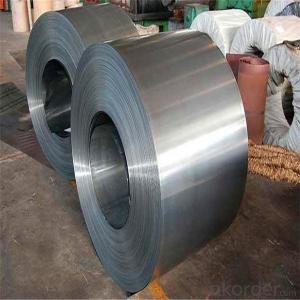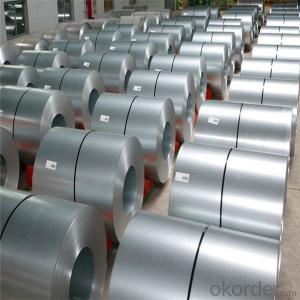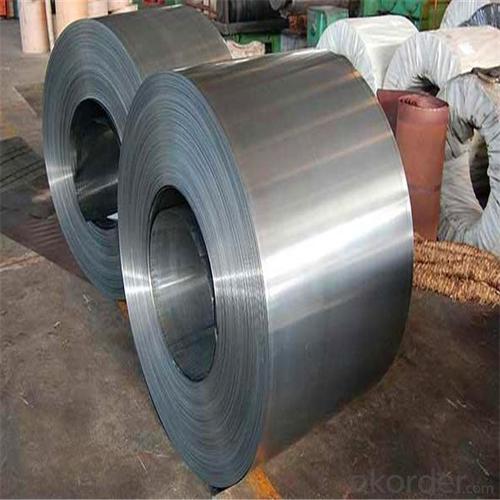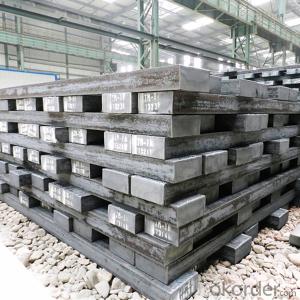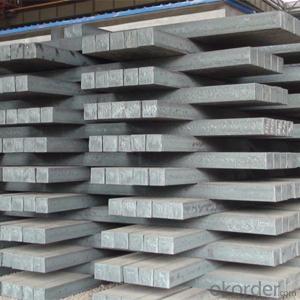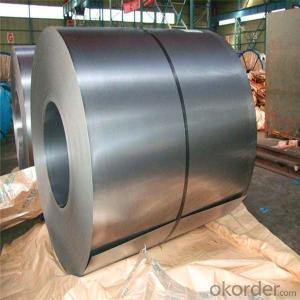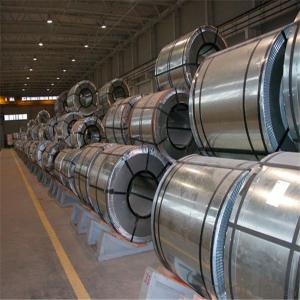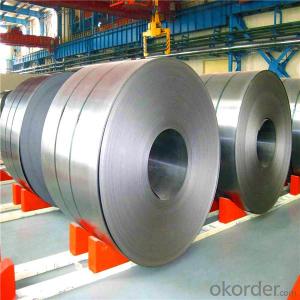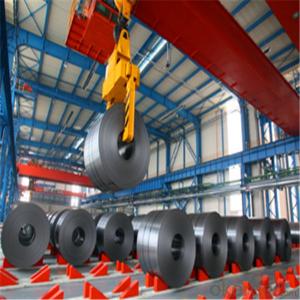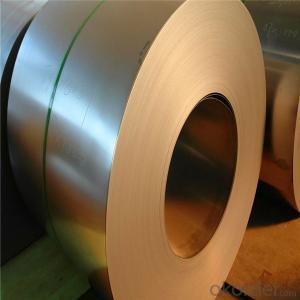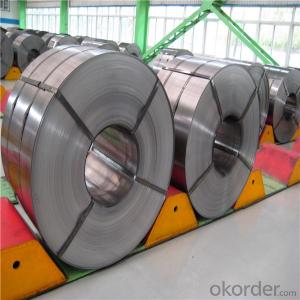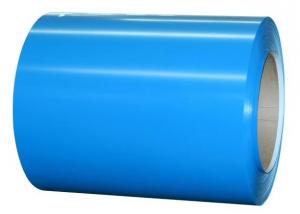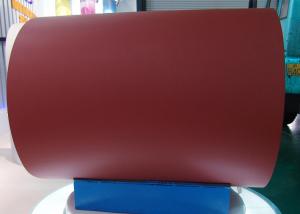Prime Quality SPCD Cold Rolled Steel Sheet/Coil
- Loading Port:
- China main port
- Payment Terms:
- TT OR LC
- Min Order Qty:
- 20 m.t.
- Supply Capability:
- 50000 m.t./month
OKorder Service Pledge
OKorder Financial Service
You Might Also Like
Specification
Prime Quality SPCC Cold Rolled Steel Sheet/coil
Usage: Widely used to appliance,automobile industry or other decoration usage.
Certificate: ISO9001
Packing Details: Wrapped by water proof paper and plastic film.Covered with iron sheet,strapped by steel strips to protect the damage under transportation.
Details please check following format
Brief Introduction
Cold rolled steel coil is steel that has been worked below its recrystallization temperature by passing it between a pair of rollers. Recrystallization temperature is the temperature at which grains in the lattice structure of the metal have been rearranged, leaving it free of strain and deformations. Cold rolled steel coil is pre-treated before being cold rolled with a process known as pickling, which uses strong acids to remove scale and other impurities. The cold rolled steel coil is then passed through rollers to reduce its thickness. Most cold rolling takes place in multiple passes and as the size of the cold rolled steel coil is further reduced, its strength and hardness both increase, but its ductility decreases. After cold rolling, heating the metal up in a process known as annealing can restore some of its ductility. The final cold rolled steel coil may be manufactured in the form of sheets, strips, bars, or other forms.
Products Picture:
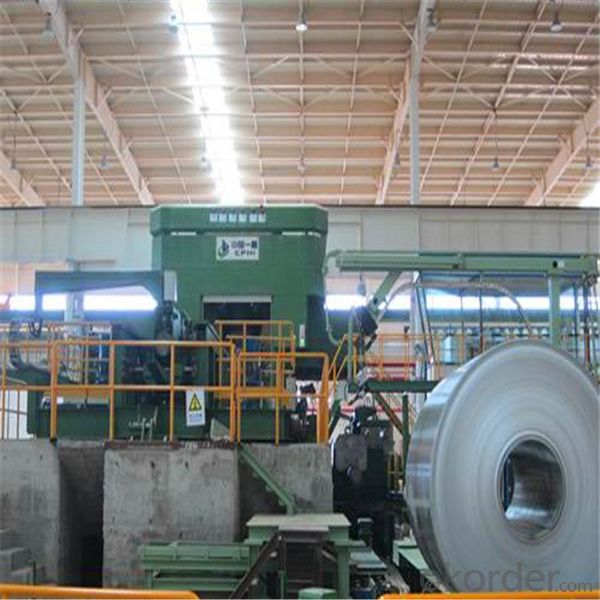
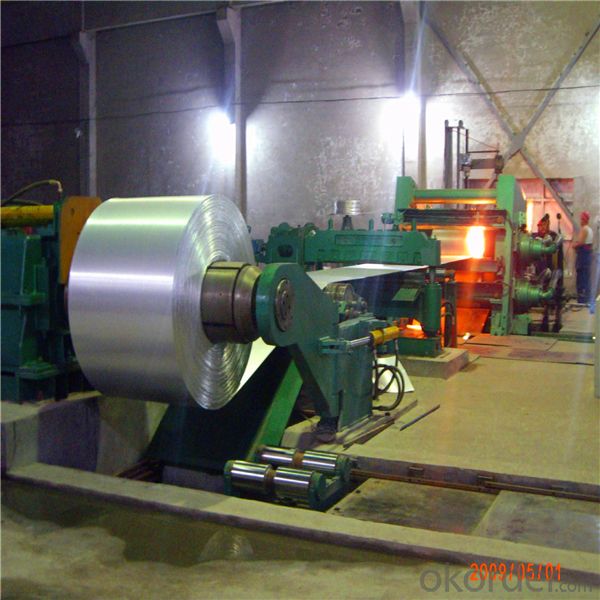
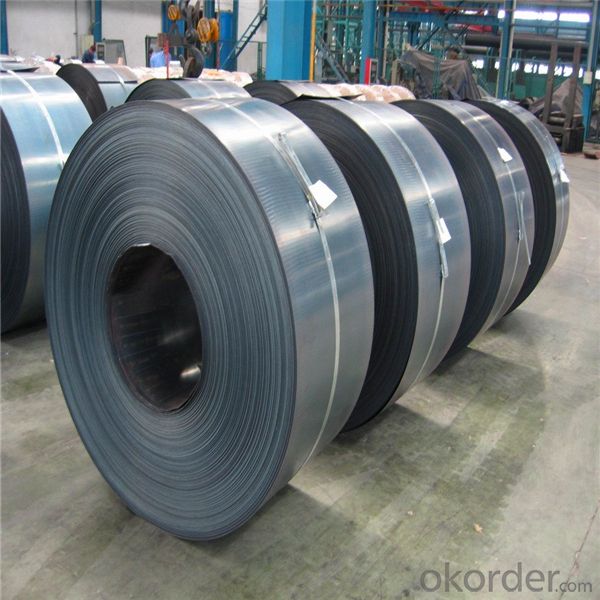
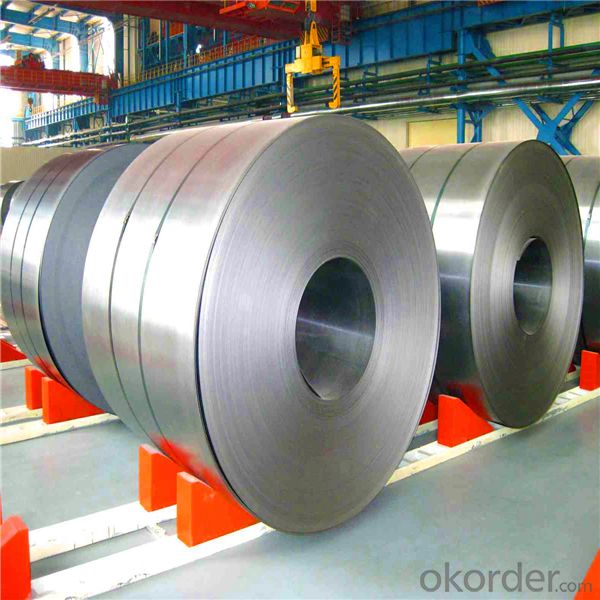
1)Size: Thickness 0.4mm to 3.0mm, width 914mm to 1500mm.
2)Length: Any size or in coil
3)Material grade: SPCC, SPCC-SD
4)Standard: GB / JIS / DIN
5)Package: Waterproof paper with steel pallet.
6)Delivery time: Within 15days.
7)Passed ISO9001 CERTIFICATE
- Q: How is steel wire galvanized for fencing applications?
- Steel wire is galvanized for fencing applications by immersing it in a bath of molten zinc. This process, known as hot-dip galvanizing, forms a protective zinc coating on the wire's surface, which helps prevent corrosion and extends its lifespan.
- Q: How is steel used in the production of HVAC systems and equipment?
- Steel is commonly used in the production of HVAC systems and equipment due to its strength, durability, and heat resistance properties. It is used to construct various components of HVAC systems such as ductwork, air handling units, heat exchangers, and furnaces. Steel's ability to withstand high temperatures and pressures ensures the reliability and longevity of HVAC systems, making it an ideal material choice in their production.
- Q: What are the different types of steel chains and their applications?
- There are several types of steel chains, each designed for specific applications. Some common types include: 1. Proof coil chains: These are general-purpose chains used for towing, securing loads, and restraining objects in various industries. 2. Grade 30 chains: Also known as Grade 30 proof coil chains, these are commonly used in light-duty applications, such as agriculture, construction, and general-purpose lifting. 3. Grade 43 chains: These chains have higher tensile strength than Grade 30 chains and are suitable for heavier-duty applications, including transportation, logging, and towing. 4. Grade 70 chains: Known as transport chains, these chains are specifically designed for securing cargo on trucks, trailers, and flatbeds. They have a higher strength-to-weight ratio, making them ideal for load binding. 5. Grade 80 chains: These chains are mostly used in lifting applications due to their high strength and durability. They are commonly found in construction, mining, and oil and gas industries. 6. Grade 100 chains: These chains have the highest tensile strength and are primarily used for heavy-duty lifting and rigging applications. They are commonly seen in shipyards, steel mills, and offshore operations. 7. Stainless steel chains: These chains are resistant to corrosion and are suitable for applications where exposure to moisture or chemicals is a concern. They are commonly used in food processing, marine environments, and medical equipment. Overall, the choice of steel chain depends on the specific application requirements, load capacity, environment, and desired level of durability.
- Q: How does the quality of steel affect its performance?
- The quality of steel directly impacts its performance. Higher-quality steel possesses superior strength, durability, and resistance to wear and tear. It also exhibits better heat conductivity and corrosion resistance, making it more suitable for various applications. Conversely, lower-quality steel may be more prone to breakage, deformation, and rapid deterioration, resulting in compromised performance and potentially unsafe conditions.
- Q: What are the different types of steel profiles used in machinery frames?
- There are several types of steel profiles commonly used in machinery frames, including I-beams, H-beams, C-channels, and angle irons. Each profile has its own unique shape and structural properties that make it suitable for specific applications in machinery construction.
- Q: How are steel products used in the manufacturing of furniture?
- Steel products are used in the manufacturing of furniture as structural components, such as frames, legs, and supports. Steel's strength and durability make it an ideal material for ensuring stability and longevity in furniture. Additionally, steel can be shaped and welded into various designs, allowing for versatile and modern furniture styles.
- Q: How is steel used in the construction of amusement parks and entertainment venues?
- Steel is commonly used in the construction of amusement parks and entertainment venues due to its strength, durability, and versatility. It is used to build roller coasters, ferris wheels, ride structures, and various other attractions. Steel provides the necessary support to ensure the safety and stability of these structures, allowing for thrilling and enjoyable experiences for visitors.
- Q: How is steel tubing manufactured?
- Steel tubing is manufactured through a process called tube making, which involves several steps. Initially, a solid steel billet is heated and pierced to form a hollow tube. This tube is then elongated and reduced in diameter using a series of rollers, resulting in a thin-walled tube. Further processing, such as straightening, cutting, and bending, may be done to achieve the desired shape and dimensions. The final product is then subjected to various finishing treatments, including heat treatment, coating, and inspection, to ensure its quality and durability.
- Q: What are the applications of steel mesh in mining operations?
- Steel mesh is commonly used in mining operations for various applications. It is primarily used for ground support and reinforcement in underground mines. Steel mesh is installed to prevent the collapse of loose rocks or soil, providing a stable working environment for miners. Additionally, it is used to line tunnels, shafts, and other excavations to ensure the safety of workers and protect against rockfall or other hazards. Steel mesh also plays a crucial role in ventilation systems by facilitating the flow of air and preventing the accumulation of dust or gases. Overall, the applications of steel mesh in mining operations are essential for maintaining a safe and efficient working environment.
- Q: How is steel used in the production of renewable energy systems?
- Steel is used in the production of renewable energy systems in various ways. It is commonly used for the construction of wind turbine towers, providing the necessary strength and stability. Steel is also used in the manufacturing of solar panels, as it provides a durable framework that supports the solar cells. Additionally, steel is utilized in the production of hydroelectric power systems, such as dams and turbines, due to its ability to withstand the forces exerted by water. Overall, steel plays a crucial role in enabling the efficient and reliable generation of renewable energy.
Send your message to us
Prime Quality SPCD Cold Rolled Steel Sheet/Coil
- Loading Port:
- China main port
- Payment Terms:
- TT OR LC
- Min Order Qty:
- 20 m.t.
- Supply Capability:
- 50000 m.t./month
OKorder Service Pledge
OKorder Financial Service
Similar products
Hot products
Hot Searches
Related keywords
